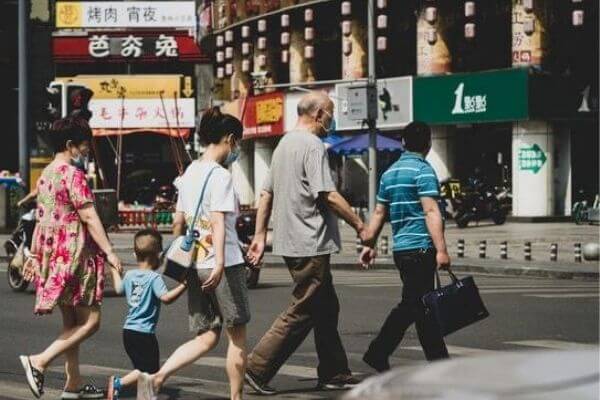
On 15 May 2020, China’s Supreme People’s Court (SPC) issued a judicial document on the trial of contract disputes, finance disputes, and bankruptcy cases against the backdrop of COVID-19.
The SPC has enacted three judicial documents responding to the COVID-19 epidemic in April, May, and June respectively. We will introduce the second document in this post.
See the other two posts of the Series, for detailed discussion of the SPC’s Opinion I and Opinion III in response to the COVID-19 pandemic:
- Coronavirus, Force Majeure and Labor Disputes: Chinese Courts Respond to COVID-19 Series-01
- Coronavirus, Letters of Credit and Shipping Industry: Chinese Courts Respond to COVID-19 Series-03
The second judicial document is the Guiding Opinions on Several Issues Concerning the Lawful and Proper Trial of Civil Cases Involving the COVID-19 (II) (關于依法妥善審理涉新冠肺炎疫情民事案件若干問題的指導意見(二)) (hereafter referred to as “Opinion II”).
The key points of Opinion II are as follows.
1. Purchase and Sale Contract Disputes
Where the sellers cannot deliver goods on time as agreed due to the COVID-19 epidemic, as long as the purpose of the contract is not rendered unachievable, the buyer cannot rescind the contract (Author’s note: even if the buyer has a right to rescind the contract according to the contract). In contrast, where the event renders the purpose of the contract unachievable, the buyer can request for rescission of the contract and refund of the prepayment or deposit which has been paid.
If the parties can continue to perform the contract, but the COVID-19 epidemic making the agreed price and time limit for delivery unreasonable, the parties may request the court to make adjustments.
2. Lease Contract Disputes
If a lessee leases housing for business operation and its income is sharply reduced due to the COVID-19 epidemic, the lessee may postpone paying the rent. If the housing is state-owned, the lessee may request a reduction or exemption of rent according to the State policy. If the housing is privately owned, the lessee may request the court to adjust the rent.
3. Training Contract Disputes
Where the parties concluded an offline training contract, but the offline training cannot be carried out due to the COVID-19 epidemic, the parties may request adjustments such as adopting online training, changing the period of training or the training fees. If the contract cannot be adjusted, the trainee can request to rescind the contract.
4. Online Payment of Minors
Where the minors expend any amount of money that is incompatible with his/her age and intelligence on online paid games or giving “reward” on a live-streaming platform without the consent of their guardians, the guardians may request the network service providers to refund the payment. (Author’s note: the minors have to study online at home because of the COVID-19 epidemic, but they may also use the network for a huge amount of online entertainment services. Parents are extremely bothered by the problems, and this provision is most likely to solve the problem).
5. Finance/Security/Insurance Disputes
Financial institutions shall abide by the financial support policies issued by the People’s Bank of China and relevant financial regulatory authorities, and shall not bring lawsuits such as early maturity of loans and unilateral rescission of contracts in violation of the policy.
Where the parties temporarily lose sources of income due to the impact of COVID-19 epidemic, with regard to the disputes over personal repayment of loans such as housing mortgage and credit cards involved by the persons, the courts shall change the repayment period according to the principle of fairness (Author’s note: that is to say, the courts shall not rashly hold that the party has breached the contract).
As for disputes over the pledge of stock rights and securities margin trading caused by price fluctuations of the securities market during the epidemic prevention and control period, the courts shall make efforts to coordinate the interests of all parties, in order to reduce the impact on the security market (Author’s note: that is to say, the courts shall not directly determine that one party is liable based on the relevant contract between the parties.)
In the trial of medical insurance disputes concerning the COVID-19 epidemic, the courts shall not support the following defense of the insurers: (1) the disease does not fall within the serious diseases or insurance accidents as agreed in commercial medical insurance contracts; (2) the insured has not received treatment at the medical service institution as agreed in the insurance contract; or (3) the medical insurance contract is a gift from the insurance company.
6. Bankruptcy Cases
Where an enterprise failed to repay due debts because of the impact of COVID-19 epidemic, and its creditors have submitted a bankruptcy application, the court shall try to rescue the enterprise to avoid the bankruptcy, and actively guide the debtors to negotiate with the creditors to eliminate the reasons of bankruptcy by installments, extending the debt performance period, changing the contract price, or other means, or actively guide the debtors to resolve the debt crisis through out-of-court mediation, out-of-court reorganization or pre-organization.
As for enterprises that have fallen into difficulties before the outbreak of COVID-19 epidemic, and their production and operation have deteriorated further due to the COVID-19 epidemic or the epidemic prevention and control measures, therefore the reasons for bankruptcy have been established, the courts shall accept the application for bankruptcy promptly according to law.
Photo by Li Lin (https://unsplash.com/@northwoodn) on Unsplash
Contributors: Guodong Du 杜國棟 , Meng Yu 余萌









